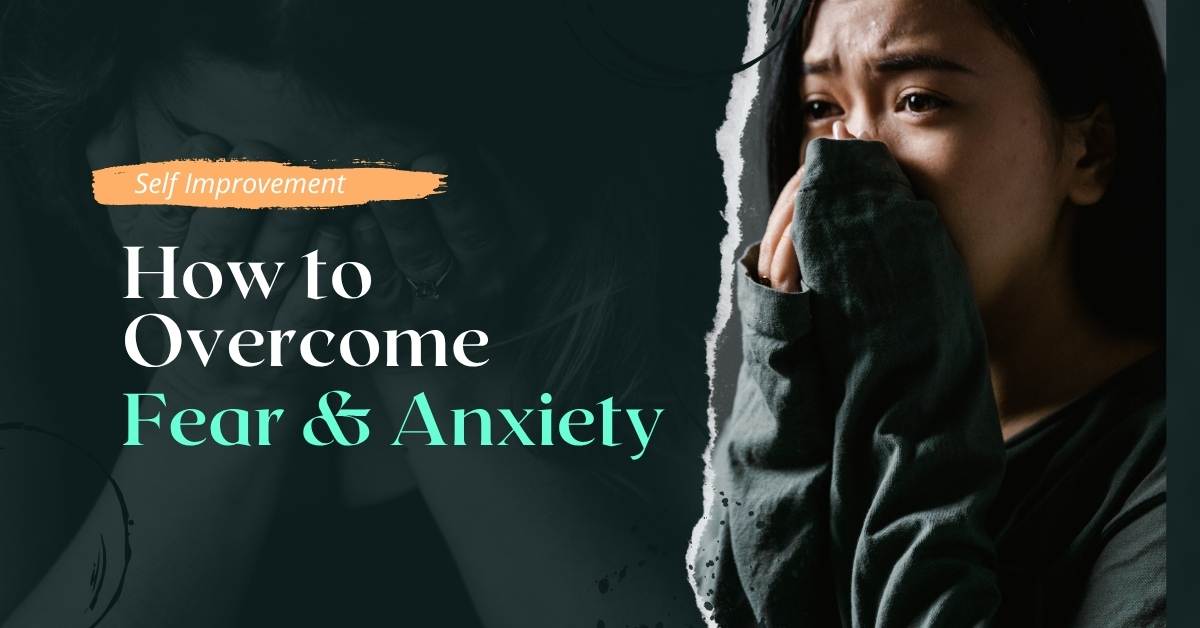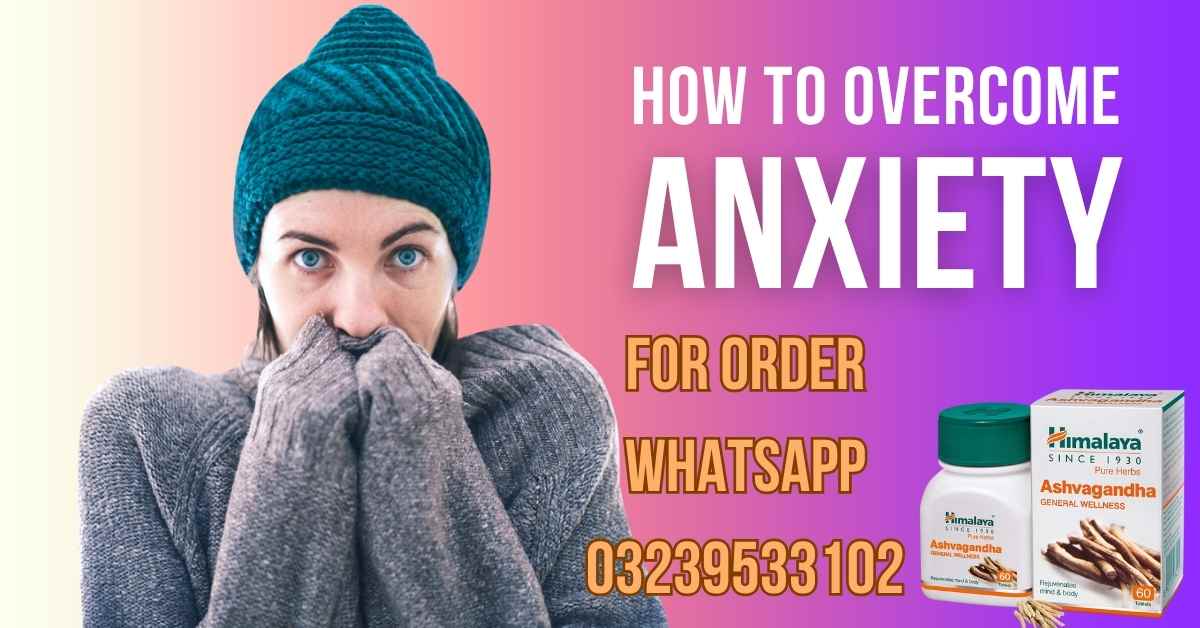- Welcome to Our store MyTelemall
- Whatsapp: 0323 - 9533 - 102

Anxiety is a growing concern in Pakistan, affecting people from all walks of life — from students and professionals to homemakers and the elderly. With the fast-paced lifestyle, economic uncertainty, social pressure, and health-related stress, anxiety and depression have become common mental health issues. While therapy and lifestyle changes play a vital role in treatment, many people also rely on anti-anxiety tablets in Pakistan to manage their symptoms effectively.

In this comprehensive article, we will explore:
What is anxiety?
Types of anxiety disorders
Common causes of anxiety
Symptoms of anxiety
Conventional treatments for anxiety
The rising demand for anti-anxiety tablets in Pakistan
Side effects and risks of chemical-based tablets
Himalaya Ashvagandha Tablets – The natural and best anti-anxiety treatment in Pakistan
Tips for managing anxiety naturally
Anxiety is your body’s natural response to stress. It is a feeling of fear, uneasiness, or worry about what's to come. While mild anxiety is normal — like feeling nervous before an exam or job interview — chronic or intense anxiety that interferes with daily life could be a sign of an anxiety disorder.
Anxiety disorders are medical conditions characterized by excessive and persistent worry, fear, or nervousness that are hard to control and affect daily functioning.
Understanding the different types of anxiety disorders helps in identifying the right treatment. The main types include:
Generalized Anxiety Disorder (GAD)
Persistent, excessive worry about everyday matters — money, health, work, or family.
Panic Disorder
Sudden, intense fear leading to panic attacks with physical symptoms like chest pain, dizziness, or shortness of breath.
Social Anxiety Disorder
Extreme fear of social situations and being judged or embarrassed in public.
Phobias
Intense fear of specific things like heights, spiders, flying, etc.
Obsessive-Compulsive Disorder (OCD)
Unwanted repetitive thoughts (obsessions) and behaviors (compulsions).
Post-Traumatic Stress Disorder (PTSD)
Anxiety following a traumatic event such as an accident, abuse, or war.
Anxiety doesn’t have a single cause. It can result from a mix of genetics, brain chemistry, and environmental factors. Common causes include:
Genetics: Family history of anxiety or other mental health conditions
Brain Chemistry: Imbalance of neurotransmitters like serotonin, dopamine, and norepinephrine
Stressful Life Events: Divorce, death, financial problems, academic pressure
Health Conditions: Chronic illnesses, hormonal imbalances, or neurological issues
Substance Abuse: Use of caffeine, alcohol, or drugs can increase anxiety levels
Personality Traits: Perfectionism, low self-esteem, and negative thinking patterns
Anxiety can manifest in physical, emotional, and behavioral symptoms. Recognizing these signs is the first step toward effective treatment.
Physical Symptoms
Rapid heartbeat or palpitations
Shaking or trembling
Headaches
Stomach upset or nausea
Dizziness
Sweating
Muscle tension
Fatigue
Shortness of breath
Emotional Symptoms
Constant worry or fear
Irritability
Feeling overwhelmed
Restlessness
Difficulty concentrating
Racing thoughts
Behavioral Symptoms
Avoiding social situations
Procrastination
Nervous habits like nail-biting
Sleep disturbances (insomnia or oversleeping)
Treating anxiety involves a multi-pronged approach that can include therapy, medication, and lifestyle changes. In Pakistan, both conventional and natural anti-anxiety tablets are used depending on the severity and personal preference.
1. Psychotherapy
Cognitive Behavioral Therapy (CBT): The most effective therapy that helps in identifying and changing negative thought patterns.
Exposure Therapy: Gradually exposing a person to the source of anxiety to reduce fear.
Talk Therapy/Counseling: Discussing problems and fears with a licensed therapist.
2. Prescription Medication
Conventional anti-anxiety tablets in Pakistan include:
Benzodiazepines (e.g., Diazepam, Lorazepam): Effective for short-term relief but highly addictive
SSRIs (e.g., Escitalopram, Fluoxetine): Used for long-term management of anxiety and depression
Beta-blockers (e.g., Propranolol): Help reduce physical symptoms like rapid heartbeat
Tricyclic antidepressants
Note: These medicines should only be taken under a doctor’s prescription and supervision. Self-medication can lead to side effects, dependency, or withdrawal symptoms.
While conventional drugs can be effective, they often come with serious side effects such as:
Drowsiness and fatigue
Nausea and stomach upset
Headaches and dizziness
Sexual dysfunction
Weight gain or loss
Emotional numbness
Dependency and withdrawal symptoms
Memory problems or confusion
Because of these risks, many people in Pakistan are now shifting toward natural alternatives that are safe, effective, and free from harmful side effects.
One of the most trusted and natural solutions for anxiety in Pakistan is Himalaya Ashvagandha Tablets. Known for its adaptogenic properties, Ashvagandha (Withania somnifera) is a powerful herb used in Ayurveda for centuries to combat stress, improve mental clarity, and boost energy.
Why Himalaya Ashvagandha is the Best?
Natural & Safe: 100% herbal formula with no harmful chemicals
Stress Reduction: Helps regulate cortisol (stress hormone) levels
Improves Sleep: Promotes calmness and better sleep quality
Boosts Mood: Increases serotonin and dopamine levels
Fights Fatigue: Enhances stamina and reduces burnout
Cognitive Benefits: Improves memory, focus, and mental clarity
No Side Effects: Unlike synthetic drugs, Ashvagandha has no known dependency issues
You can purchase Himalaya Ashvagandha Tablets from our online store, just place your order and get delivery at your doorstep. We provide home delivery service all over Pakistan.
Recommended Dosage: Usually 1–2 tablets daily after meals or as advised by a health professional.
Pro Tip: Consistency is key. It may take 2–4 weeks of daily use to experience full benefits.
Combining Himalaya Ashvagandha with natural lifestyle changes can provide even better results. Here are some proven tips:
1. Practice Mindfulness & Meditation
Spend 10–15 minutes daily focusing on your breath. Meditation reduces overthinking and calms the nervous system.
2. Exercise Regularly
Physical activity releases endorphins, the body’s natural feel-good chemicals. Even a 30-minute walk can help.
3. Eat a Balanced Diet
Avoid processed foods, caffeine, and sugar. Include omega-3 rich foods like walnuts, chia seeds, and fish.
4. Get Quality Sleep
Establish a regular sleep routine. Avoid screens an hour before bedtime and create a calming sleep environment.
5. Avoid Alcohol and Smoking
These substances can worsen anxiety symptoms and disrupt the body’s natural balance.
6. Aromatherapy
Essential oils like lavender, chamomile, and ylang-ylang can be used in diffusers to reduce stress.
Q1: Are anti-anxiety tablets available without prescription in Pakistan?
Some natural supplements like Himalaya Ashvagandha are available without a prescription. However, chemical-based tablets should only be taken under a doctor's supervision.
Q2: Is Ashvagandha better than prescription medicine?
For mild to moderate anxiety, Ashvagandha can be highly effective and safe. For severe cases, it can be used alongside other treatments after medical consultation.
Q3: How long does it take for Ashvagandha to work?
You may start noticing changes within 1–2 weeks, but optimal results are seen after 4–6 weeks of regular use.
Q4: Can Ashvagandha be used long-term?
Yes, it is safe for long-term use when taken in recommended doses.